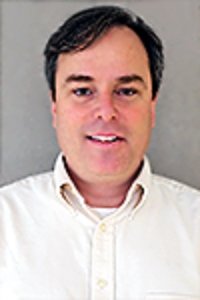Meet EPA Scientist Terry J. Keating, PhD

Dr. Terry Keating is a senior scientist managing EPA’s engagement with the Health Effects Institute and HEI Energy, two public-private partnerships that conduct independent research on health risks associated with air pollution and unconventional oil and gas development, respectively. Terry also leads coordination of EPA’s international research engagements. Since 2005, he has co-chaired the Task Force on Hemispheric Transport of Air Pollution under the Convention on Long Range Transboundary Air Pollution. Since 2022, he has co-chaired the Open-Ended Science Group to inform the effectiveness evaluation under the Minamata Convention on Mercury, a global treaty to protect human health and the environment from the adverse effects of mercury pollution.
What research are you working on right now?
One area of my work is looking at how monitoring, modeling, and emissions inventory efforts around the world can be used to evaluate the effectiveness of the Minamata Convention on Mercury. What does existing data tell us about how policies have affected the levels of mercury in the air, biota, and humans? What scientific investments will most improve our ability to address this question and track changes over time?
What is your education/science background?
I received my bachelor’s degree in environmental science at University of California, Riverside. Next, I received a master’s degree and Ph.D. in environmental science and engineering from University of North Carolina, Chapel Hill.
When did you first know you wanted to be a scientist?
I was very interested in environmental issues starting in elementary school. Through high school and into college, I thought I wanted to go into environmental law. In college, I discovered that I was more interested in understanding the science of environmental problems and less interested in legal theory and practice. In graduate school, I began to focus on how science is applied to make better policy decisions, and that remains my passion.
What do you like most about your research?
I am always learning something new from talented scientists inside and outside EPA, and I get to share what I’ve learned and why it is important with colleagues who are working to develop and implement important environmental policies. I hope that together, we are making a difference.
How does your science matter?
Currently, air pollution is the largest environmental contributor to the global burden of disease, and that burden is borne most often by vulnerable populations. I like to think that the science that I have contributed to has helped inform policy actions and research investments that are helping to address this burden. My main contribution has been to facilitate communication and collaboration between scientists from different disciplines and different countries and between scientists, policy makers, and other stakeholders.
If you weren’t a scientist, what would you be doing?
Growing up I always wanted to be a national park ranger, talking to visitors about why we need to work together to protect the environment.
What advice would you give a student interested in a career in science?
Think about how the information from the science you are working on or studying can affect someone else’s decisions. Who are your “stakeholders?” Go talk to them. Find out how they use the information. It will help you develop more useful scientific products and can lead you into interesting areas of research.
What’s your role in space research at EPA?
I have worked with teams developing satellite-based instruments or data products from such instruments to identify how their data can be used to improve air pollution emissions estimates, evaluate air pollution models and forecasts, and improve air pollution exposure assessments. Observations from satellites have transformed our understanding of the global magnitude of air pollution exposures and the transport of air pollution over oceans and continents. They are a key tool to help understand and address transboundary flows of air pollution, as well as to understand air pollution exposures in regions and countries that do not have monitoring infrastructure on the ground.
Editor's Note: The opinions expressed herein are those of the researcher alone. EPA does not endorse the opinions or positions expressed.
